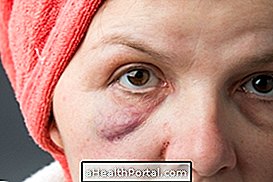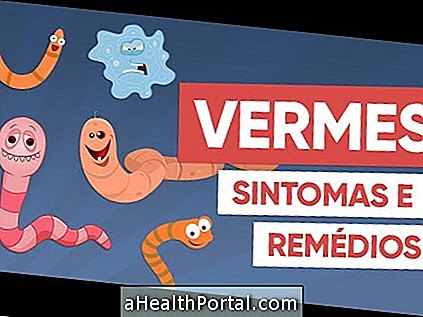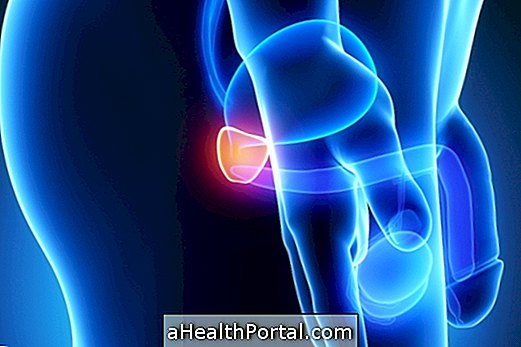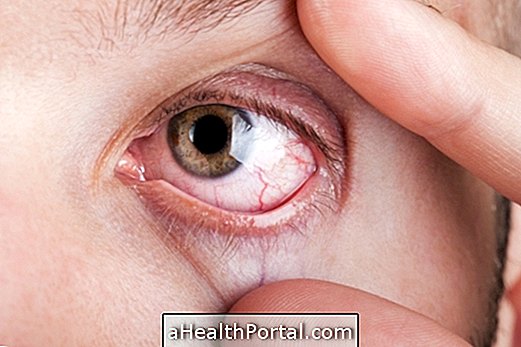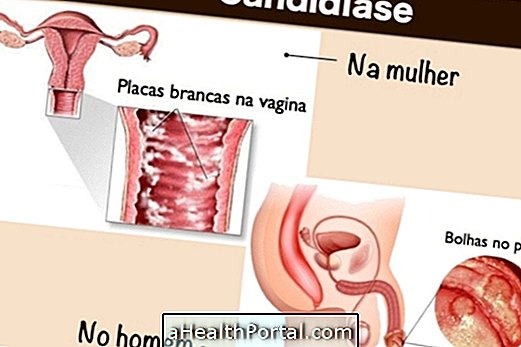The remedies that can be used for pain can be analgesic, anti-inflammatory or muscle relaxants. Thus, to have a better effect on pain relief, it is important to know which remedy is most appropriate for each type of pain, since the pain has different causes.
Over-the-counter remedies may be used under the guidance of the pharmacist, but a physician should always be consulted to treat the cause of the pain. See which doctor looks in: Which doctor treats each illness.
This care is important because overuse of medications may increase the risk of developing hepatitis or cirrhosis, for example, as well as mask some symptoms, making it more difficult to make the diagnosis. In any case, here are some examples of medicines for the most common types of pain:
1. Sore throat remedies
Sore throat is usually caused by the development of inflammation and therefore the most indicated remedies to relieve this type of pain are the anti-inflammatory tablets, such as:
- Ibuprofen;
- Diclofenac;
- Nimesulide.
These medicines should be used as directed by your doctor or according to the dosage form and if there is no improvement in sore throat after 2 days or if other symptoms such as fever and chills appear, it is advisable to consult a general practitioner or an otolaryngologist because the pain may be being caused by a tonsillitis or pharyngitis, for example, that need to be treated with antibiotics.
Learn about a way to complete drug treatment in: Gargle for sore throat.

2. Remedies for Toothache
The toothache may arise suddenly and is usually caused by the presence of a tooth with caries or inflammation of the gum and therefore, depending on the case, analgesic or anti-inflammatory tablets may be used.
Toothache with inflammation
- Ibuprofen;
- Naproxen.
Toothache without inflammation
- Paracetamol;
- Dipyrone.
Although toothache can be alleviated with the use of these medications it is always recommended to consult a dentist to identify the cause of the pain, as it may be necessary to repair the tooth that hurts or take antibiotics to treat abscesses or cavities, for example.
See natural ways to relieve pain in: 4 tips to decrease toothache.
3. Remedies for Earache
Ear pain should always be evaluated by an otolaryngologist because, in most cases, it is caused by an infection within the ear canal that should be treated with the use of antibiotics and anti-inflammatories to decrease inflammation.
The remedies can be found in the form of drops for application inside the ear. Here's how they should be applied to: Earache remedy.
4. Remedies for Stomach Ache
Stomach pain may be caused by irritation of the gastric mucosa or excess food inside the stomach, and different types of medications may be used, depending on the symptoms presented:
Pain, heartburn or burning in the stomach
- Aluminum hydroxide;
- Cimetidine;
- Ranitidine.
Nausea or full stomach feeling
- Metoclopramide;
- Domperidone.
In addition, in either case a gastric protector, such as Omeprazole or Lansoprazole, may be taken 15 minutes before breakfast to prevent the gastric mucosa from becoming irritated during the day, avoiding the onset of pain. Read how to relieve pain in other ways: Stomach pain.
When the pain takes more than 1 week to disappear, a gastroenterologist should be consulted to make diagnostic tests, such as endoscopy, to identify the problem and initiate appropriate treatment.

5. Remedies for Back Pain
Back pain is most often caused by muscle problems caused by poor posture or excessive training in the gym, so the most commonly used remedies are:
- Muscle relaxants;
- Paracetamol.
However, if it takes more than 1 week for the pain to disappear, it is recommended to consult an orthopedist as this may be caused by a problem in the spine that must be identified and treated appropriately.
Know other causes of back pain and how to treat in: Back pain.
6. Headache Remedies
Headache is one of the most frequent symptoms because it can be caused by several causes such as fever, excessive stress or tiredness, for example. Some of the medicines most used to relieve headache are:
- Paracetamol;
- AAS.
Although the headache may improve after using this medicine, it is recommended to consult a general practitioner when it takes more than 3 days to pass or symptoms such as excessive tiredness, pain in other parts of the body, increased fever or confusion, for example.
See also how to relieve headache naturally: 5 steps to relieve headache without medicines.
7. Remedies for menstrual cramps
Menstrual cramps are caused by excessive contraction of the female reproductive organs or by their inflammation, and thus the most commonly used remedies are:
- Antispasmodics;
- Anti-inflammatory.
However, menstrual cramps can also be alleviated with home-made techniques like putting a warm compress on the pelvic region or drinking tea from hose leaves, for example. Read other tips on: 6 tips to decrease menstrual cramps.
8. Remedies for Muscle Pain
Muscle pain is usually caused by the inflammation of the muscle fibers that happens when the muscle is contracted for a long time, such as in gym training or during stressful situations. In this way, the most commonly used remedies to relieve muscle pain include:
- Muscle relaxants;
- Anti-inflammatories: Ibuprofen, Nimesulide or Naproxen;
- Analgesics: Paracetamol or Dipyrone.
In addition, muscle pain can also be treated more quickly when using stretches of affected muscles and placing warm compresses.
In cases where muscle pain takes more than 1 week to pass or the pain does not improve it is advisable to consult an orthopedist to do diagnostic tests and to identify if there is any more serious problem that is causing the pain, such as distension, tendinitis or arthritis, for example.
Know the risks of overuse of drugs in:
Taking medicine without medical advice can damage the liver.

